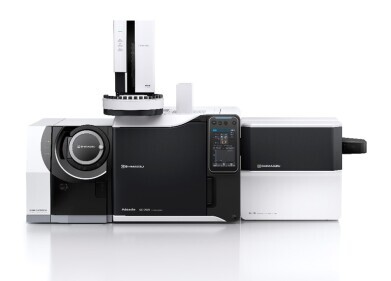Mass Spectrometry & Spectroscopy
Do Different Drinks Affect Your Mood Differently?
Dec 07 2017
It's no secret that alcohol influences the mood. But do the effects vary depending on what kind of alcohol is consumed? According to a recent study published in peer-reviewed journal BMJ Open, the answer is yes.
For years, drinkers have claimed that certain types of alcohol can trigger different moods. For example, red wine has a relaxing reputation, while gin is known for its melancholy side effects. Now, a team of scientists is maintaining that there is a clear link between mood and they type of alcohol consumed.
Alisha Davies, head of research and development at Public Health Wales and study co-author explains her motives, commenting “There is plenty of promotional material—through advertising, for instance—to promote the positive emotions people might look for from drinking. But we thought it was also important to better understand the negative ones as well. If we are to help people make informed decisions about their drinking, they need to know the full picture of how alcohol affects moods and emotions.”
Delving into the Global Drug Survey
Drawing on 30,000 responses from the Global Drug Survey, the study analysed the drinking habits of people aged 18-34. While it didn't distinguish between different varieties of spirits or beer, the results did indicate a clear correlation between alcohol and mood.
For example, 30% of respondents associated aggression with spirits. Interestingly, just 3% reported aggression when drinking wine and just 7% with beer. Meanwhile, 53% of respondents viewed red wine as a relaxant and a further 60% associated it with lethargy. White wine was significantly less tiring, with just 18% of respondents associating it with fatigue. Unsurprisingly, 59% of respondents associated spirits with energy and confidence, while 42% claimed it made them feel sexy.
Chemical or social conditioning?
Of course, what remains unclear is whether the associated moods are triggered by chemical reactions or social expectations. Basically, if people choose their poison based on the mood they wish to slip into, resulting moods could be little more than self-fulfilling prophecies.
Ultimately, Davies and her colleagues hope to unravel how the emotional effects of alcohol differ from person to person. This could arm scientists with a better understanding of alcohol dependency, and how to combat the 3.3 million deaths a year caused by Alcohol Use Disorder.
“Increasing our understanding of how alcohol affects moods and emotions, and the complex emotive relationship we have with alcohol, helps to inform our approach to addressing factors which influence our decisions about drinking,” says Davies.
Drugs are another global killer, with the latest reports revealing that narcotics cause around 200,000 premature deaths a year. For a closer look at how forensic toxicologists trace and identify drugs don’t miss 'Pushing the Limits of Speed and Sensitivity in Drug Screening – an LC-MS solution.'
Digital Edition
Lab Asia 31.2 April 2024
April 2024
In This Edition Chromatography Articles - Approaches to troubleshooting an SPE method for the analysis of oligonucleotides (pt i) - High-precision liquid flow processes demand full fluidic c...
View all digital editions
Events
Apr 28 2024 Montreal, Quebec, Canada
May 05 2024 Seville, Spain
InformEx Zone at CPhl North America
May 07 2024 Pennsylvania, PA, USA
May 14 2024 Oklahoma City, OK, USA
May 15 2024 Birmingham, UK


















